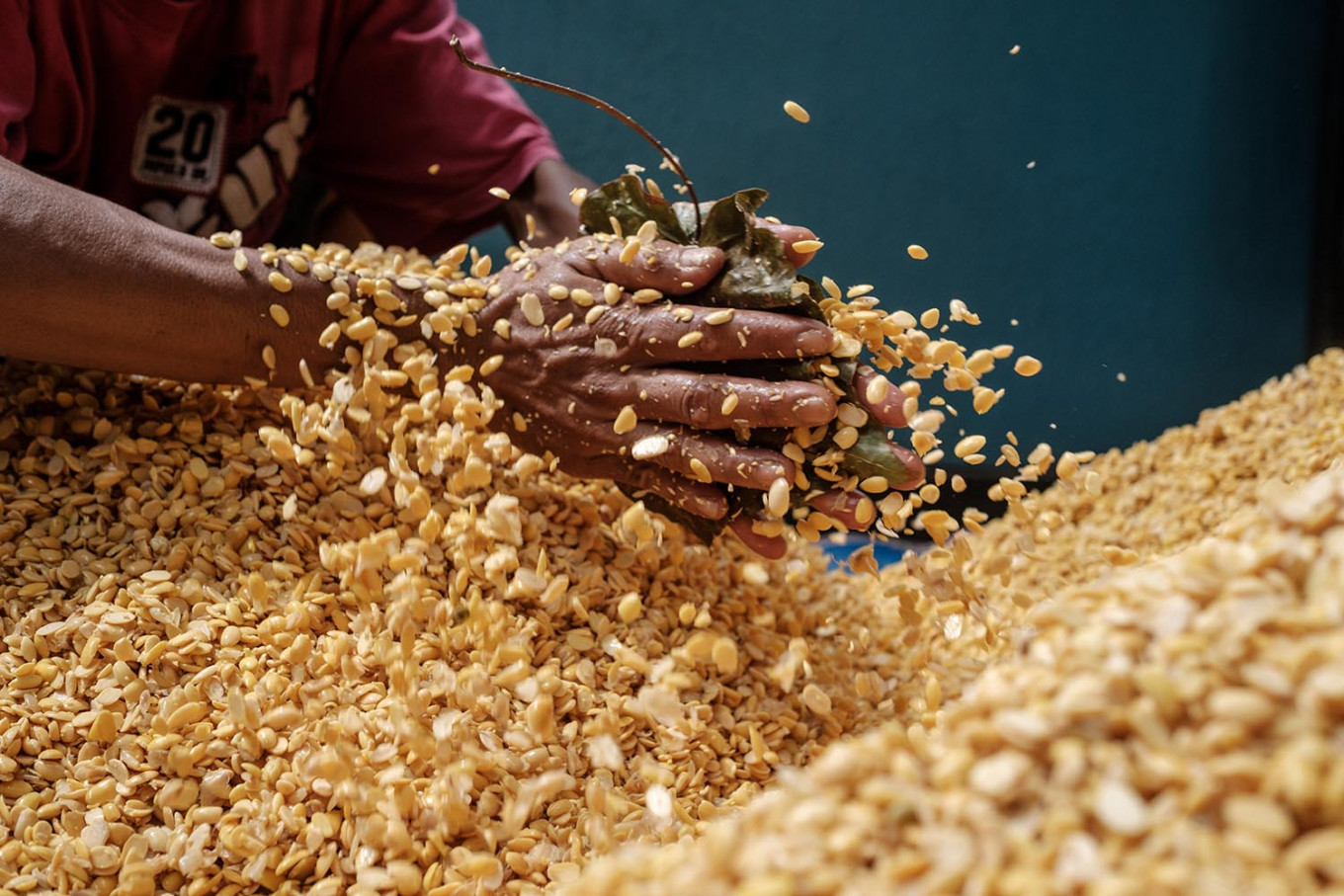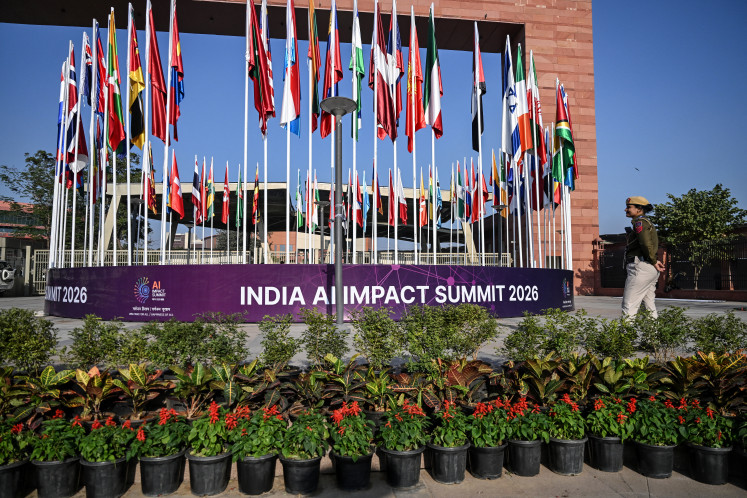Popular Reads
Top Results
Can't find what you're looking for?
View all search resultsPopular Reads
Top Results
Can't find what you're looking for?
View all search resultsGovt to set reference price for soybeans to reduce import reliance
To encourage local production, the Agriculture Ministry aims to expand the soybean planting area by 600,000 hectares in 2023.
Change text size
Gift Premium Articles
to Anyone
I
ndonesia will set a reference purchasing price for local soybeans to spur domestic production and reduce its reliance on imports.
The plan was revealed on Tuesday in a press release from the National Food Agency (BPN), which stated that President Joko “Joko” Widodo had asked the agency to help encourage farmers to grow soybeans.
“In accordance with the President’s mandate, we will immediately prepare the price policy, of course, by inviting all stakeholders to sit down together,” said BPN chairman Arief Prasetyo Adi, referring to a closed-door meeting with Jokowi on Monday.
He added that the planned reference price for soybeans bought from farmers would be around Rp 10,000 per kilogram, which, based on BPN calculations, should ensure a profit for farmers.
The reference price policy would, however, need to be accompanied by efforts to increase soybean farm productivity.
Arief said that in the President's instruction, he underlined that “domestic soybean consumption should not be met solely through imports.” Hence, the Agriculture Ministry was also responsible for spurring domestic production of the commodity.
One effort in this regard, he added, was planting high-yielding varieties and, if necessary, using genetically modified seeds.
That way, Arief said, local soybean production could jump from between 1.6 and 2 tonnes per hectare to between 3.5 and 4 tonnes.
Read also: Govt aims to combat food inflation with GMO, experts and farmers sceptical
Furthermore, he noted, the ministry was preparing to expand the soybean planting area by a targeted 600,000 hectares.
“One effort [in this regard] is to optimize around 300,000 hectares of land in Konawe, Southeast Sulawesi, as stated by the agrarian and spatial planning minister during the meeting with the President,” Arief noted.
To protect local soybeans against competition, the government is also considering an import tariff to be determined soon, according to the same release.
Coordinating Economic Minister Airlangga Hartarto confirmed the President’s request to reduce the country's reliance on soybean imports.
“The President wants soybean [supply] not to be 100 percent dependent on imports, because [he sees] national production continuing to decline, [making it harder to meet the] 2.4 million tons of domestic demand,” he said on Tuesday, as quoted by news agency Antara.
He noted that Jokowi had asked state-owned enterprises (SOEs) to purchase locally produced soybeans at a predetermined price. “So, to reach that price, there will be an assignment from SOEs, so that farmers can [sell] at a price of Rp 10,000 per kg.”
He claimed farmers would not plant soybeans if the price was set below Rp 10,000 per kg. Soybeans imported from the United States are sold at about Rp 7,700 a kg.
"In 2018, for example, we produced [soybeans on] 700,000 hectares; now it’s only 150,000 hectares. So, if farmers are asked to choose [to grow] corn or soybeans, they all will run to corn. Now, we want [local production] to be mixed, not just corn, but also soybean," he explained.
Airlangga revealed that the government had been preparing a budget allocation to expand the soybean planting area from the current 150,000 hectares to 600,000 ha next year, as the government aimed to increase it to 1 million ha in 2 to 3 years.
As for other food commodities, namely shallots, cayenne peppers and curly red chilis, Airlangga stated that the President had requested that production centers in Solok and Indragiri, West Sumatra, as well as Brebes, Central Java, continue to increase their production.
"The production must be increased and cold chain or cold storage must be provided, and that will also be assigned to SOEs. Hopefully, all of these farmers' produce can be fully absorbed by the domestic market," said Airlangga.
Airlangga also noted that Jokowi had directed local governments to bear the cost of commodity transportation to contain food inflation.
"And now the distribution is carried out in accordance with the directions at the coordination meeting on inflation. Transportation subsidies are [provided] by each regional government, [and the BPN and the Agriculture Minister support this]," he noted.











